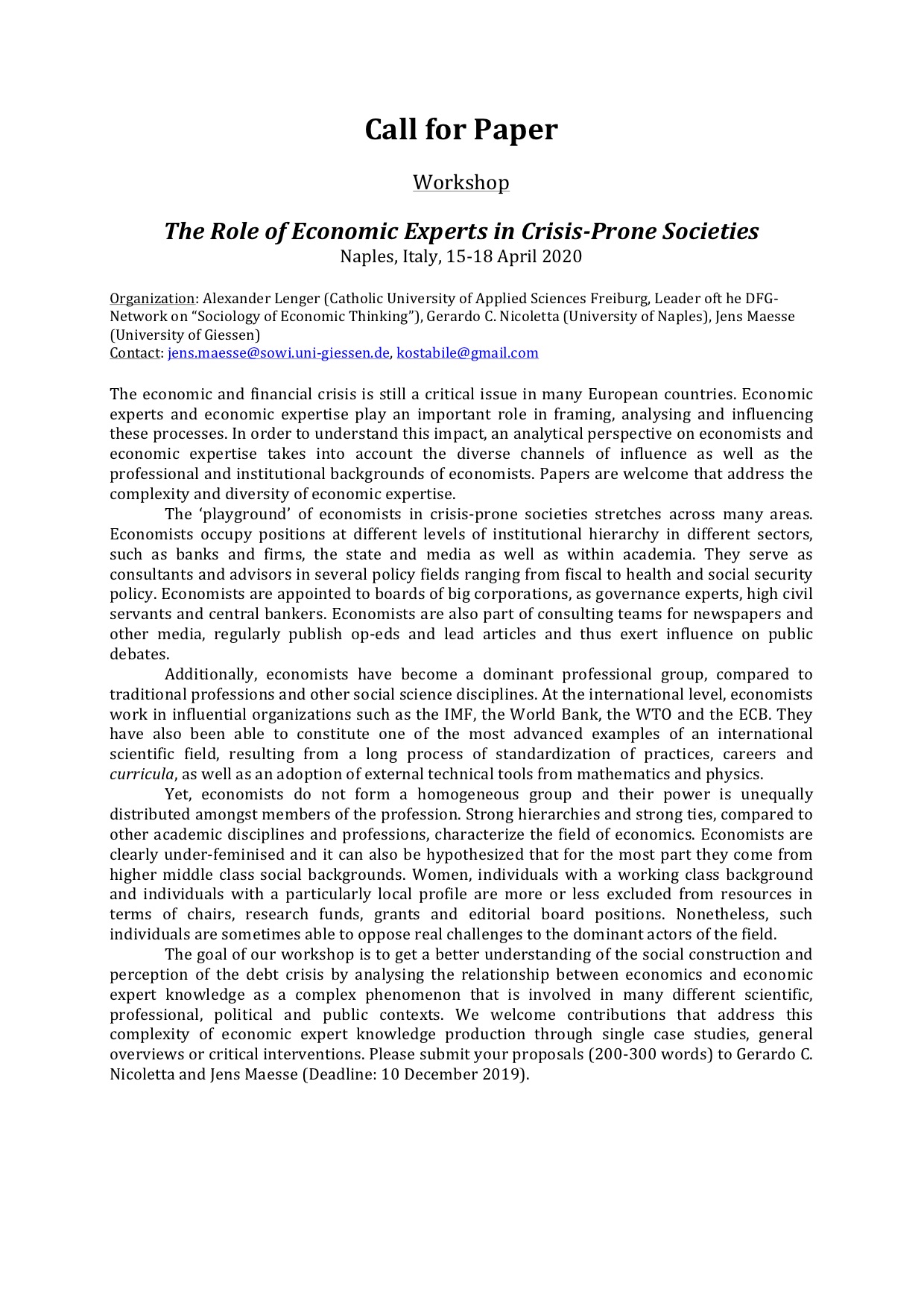Naples
Itália

Workshop
The Role of Economic Experts in Crisis-Prone Societies
Naples, Italy, 15-18 April 2020
Organization: Alexander Lenger (Catholic University of Applied Sciences Freiburg, Leader oft he DFG-Network on “Sociology of Economic Thinking”), Gerardo C. Nicoletta (University of Naples), Jens Maesse (University of Giessen)
Contact: jens.maesse@sowi.uni-giessen.de, kostabile@gmail.com
The economic and financial crisis is still a critical issue in many European countries. Economic experts and economic expertise play an important role in framing, analysing and influencing these processes. In order to understand this impact, an analytical perspective on economists and economic expertise takes into account the diverse channels of influence as well as the professional and institutional backgrounds of economists. Papers are welcome that address the complexity and diversity of economic expertise.
The ‘playground’ of economists in crisis-prone societies stretches across many areas. Economists occupy positions at different levels of institutional hierarchy in different sectors, such as banks and firms, the state and media as well as within academia. They serve as consultants and advisors in several policy fields ranging from fiscal to health and social security policy. Economists are appointed to boards of big corporations, as governance experts, high civil servants and central bankers. Economists are also part of consulting teams for newspapers and other media, regularly publish op-eds and lead articles and thus exert influence on public debates.
Additionally, economists have become a dominant professional group, compared to traditional professions and other social science disciplines. At the international level, economists work in influential organizations such as the IMF, the World Bank, the WTO and the ECB. They have also been able to constitute one of the most advanced examples of an international scientific field, resulting from a long process of standardization of practices, careers and curricula, as well as an adoption of external technical tools from mathematics and physics.
Yet, economists do not form a homogeneous group and their power is unequally distributed amongst members of the profession. Strong hierarchies and strong ties, compared to other academic disciplines and professions, characterize the field of economics. Economists are clearly under-feminised and it can also be hypothesized that for the most part they come from higher middle class social backgrounds. Women, individuals with a working class background and individuals with a particularly local profile are more or less excluded from resources in terms of chairs, research funds, grants and editorial board positions. Nonetheless, such individuals are sometimes able to oppose real challenges to the dominant actors of the field.
The goal of our workshop is to get a better understanding of the social construction and perception of the debt crisis by analysing the relationship between economics and economic expert knowledge as a complex phenomenon that is involved in many different scientific, professional, political and public contexts. We welcome contributions that address this complexity of economic expert knowledge production through single case studies, general overviews or critical interventions. Please submit your proposals (200-300 words) to Gerardo C. Nicoletta and Jens Maesse (Deadline: 10 December 2019).